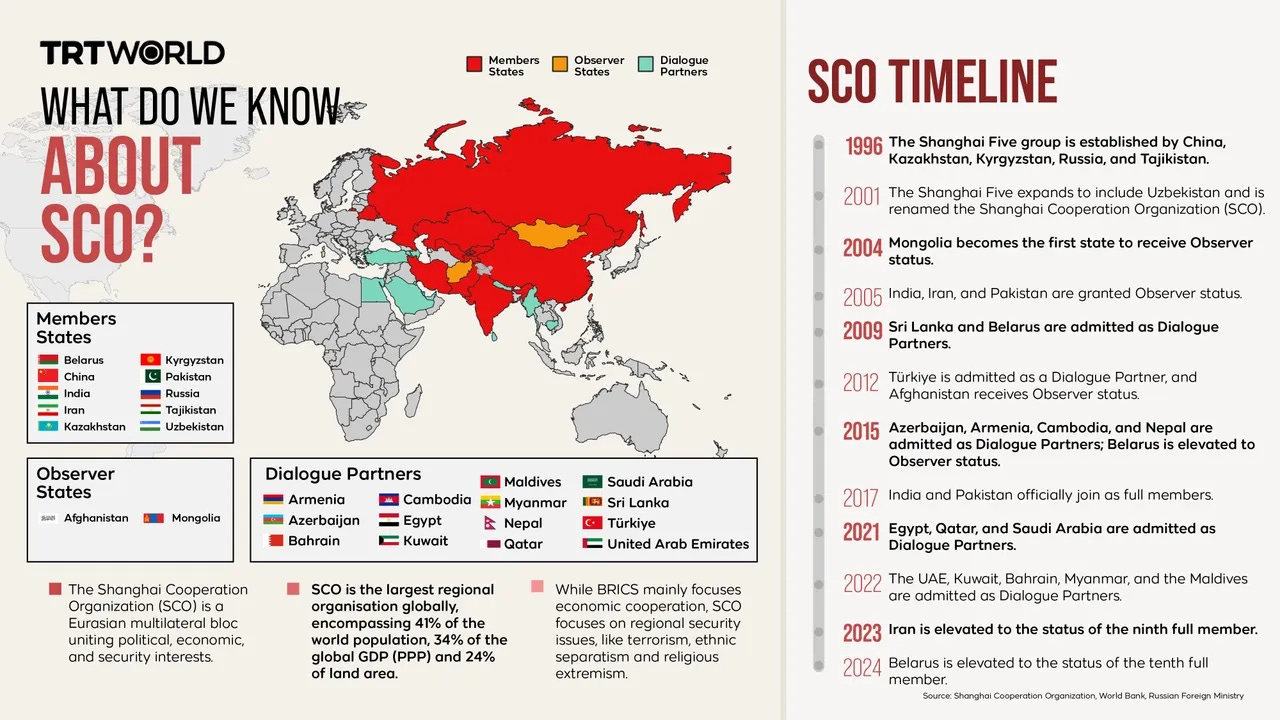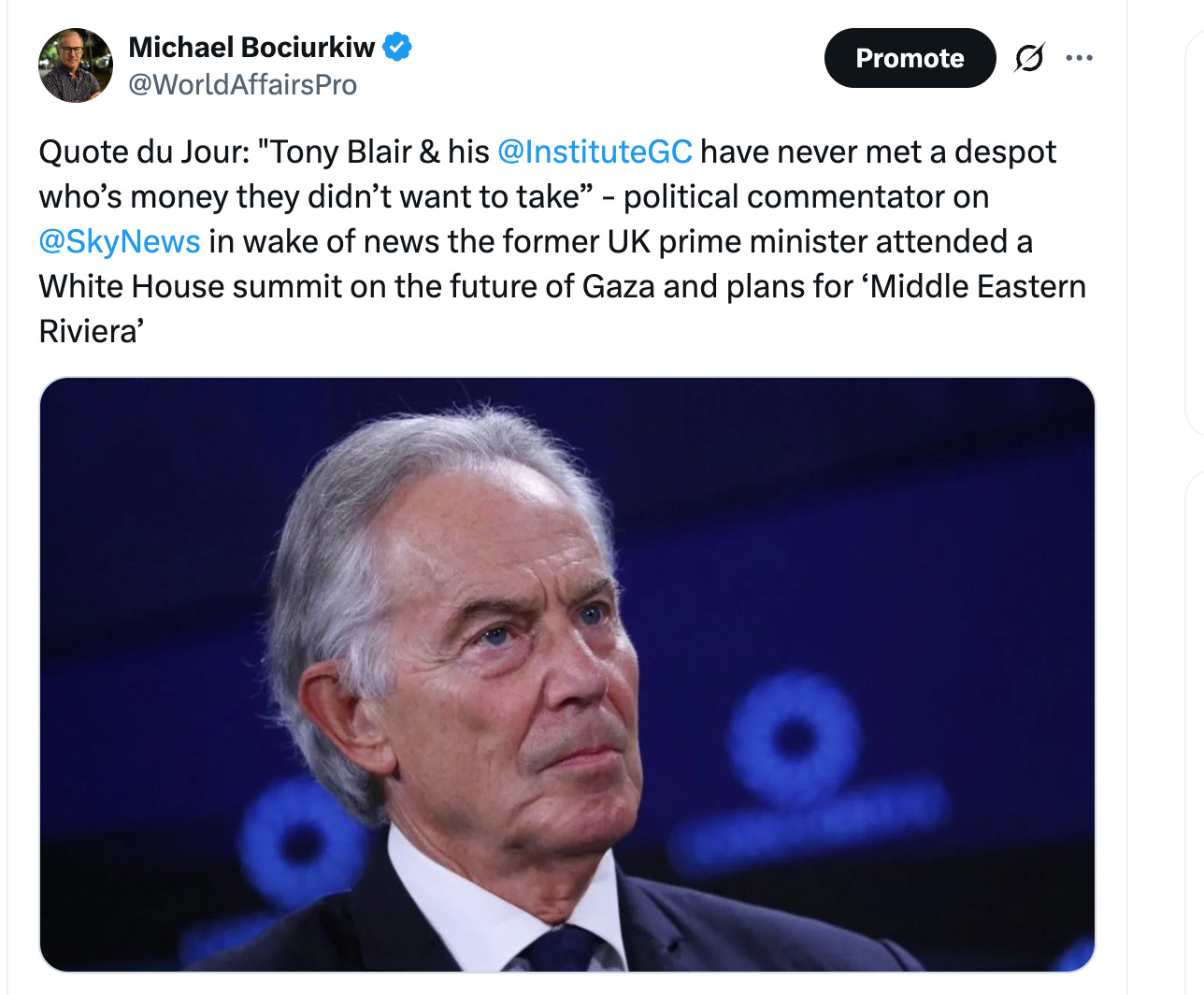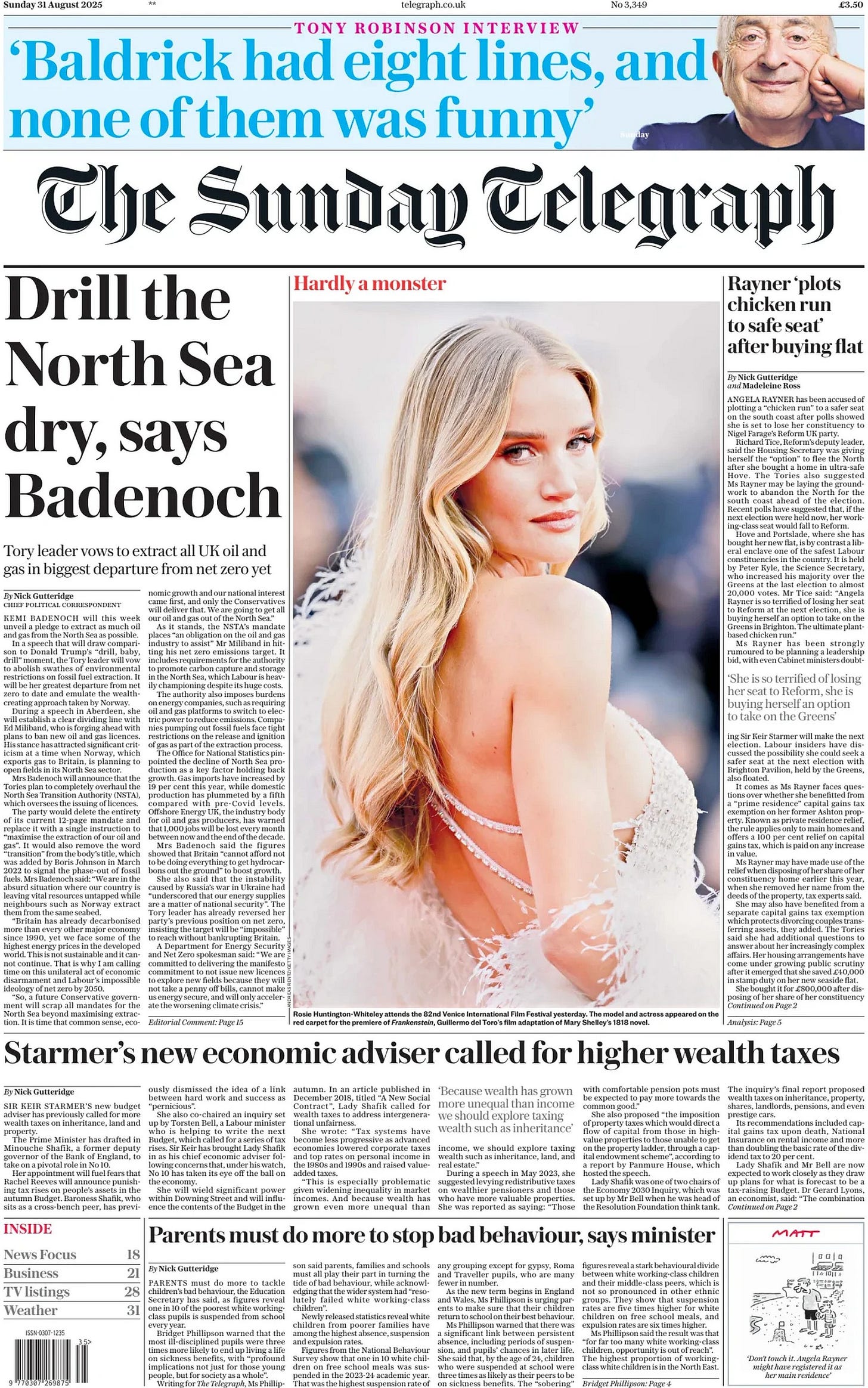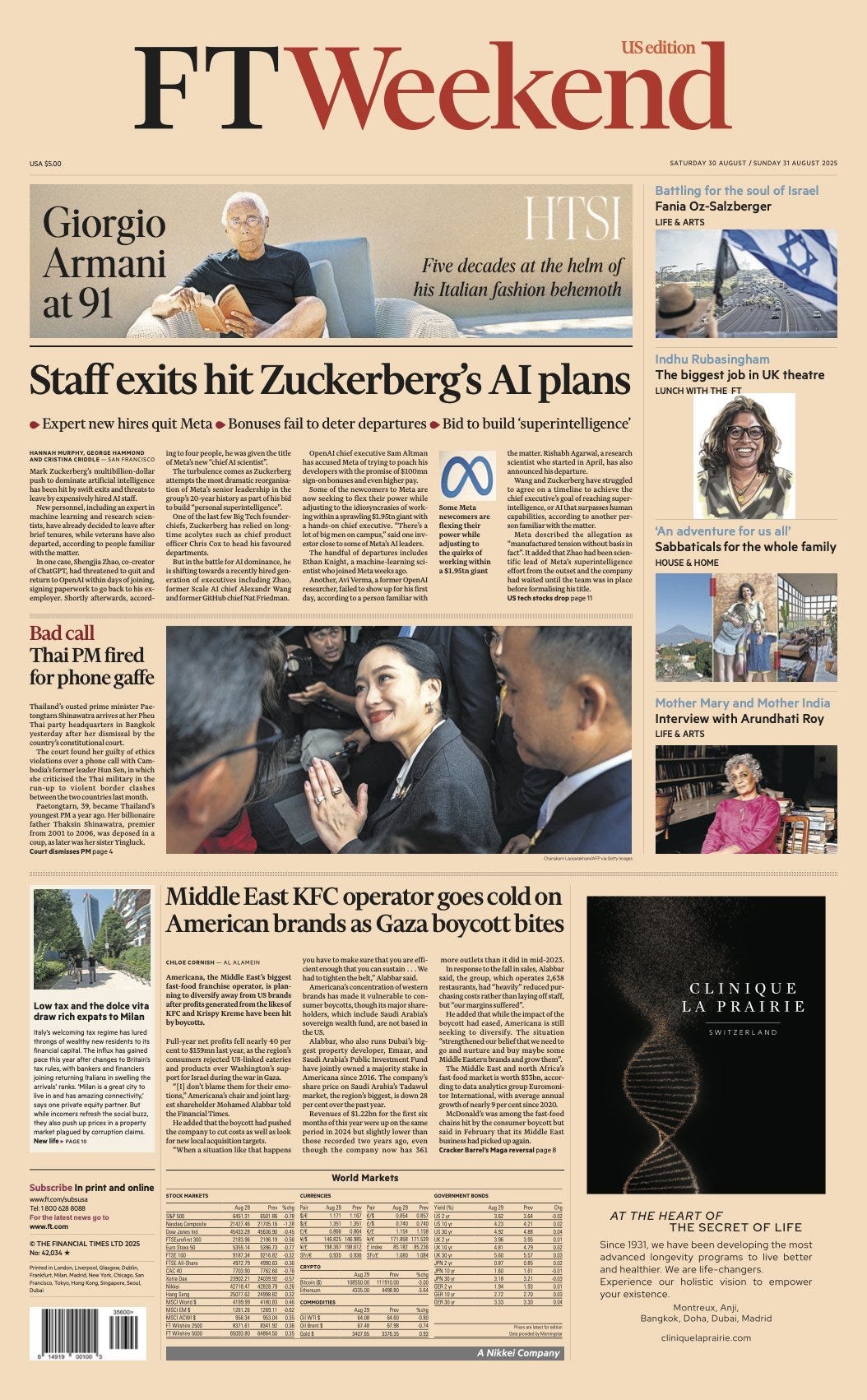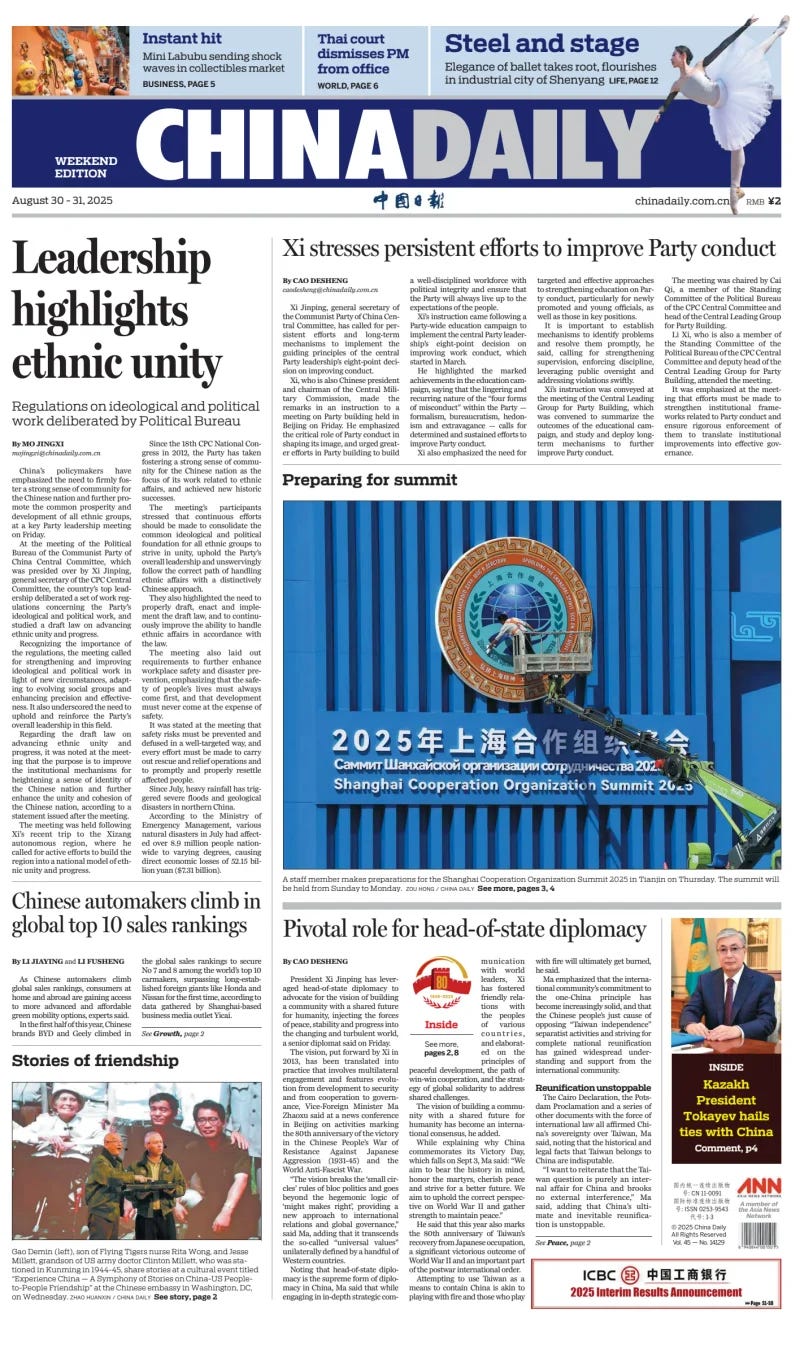Summit of Strongmen: Tianjin Hosts the World’s Worst Houseguests
From Putin & Xi to Erdogan, Kim & assorted autocrats, populists, and opportunists, the SCO gathering is less about peace and prosperity — and more about photo-ops and flipping off Donald Trump
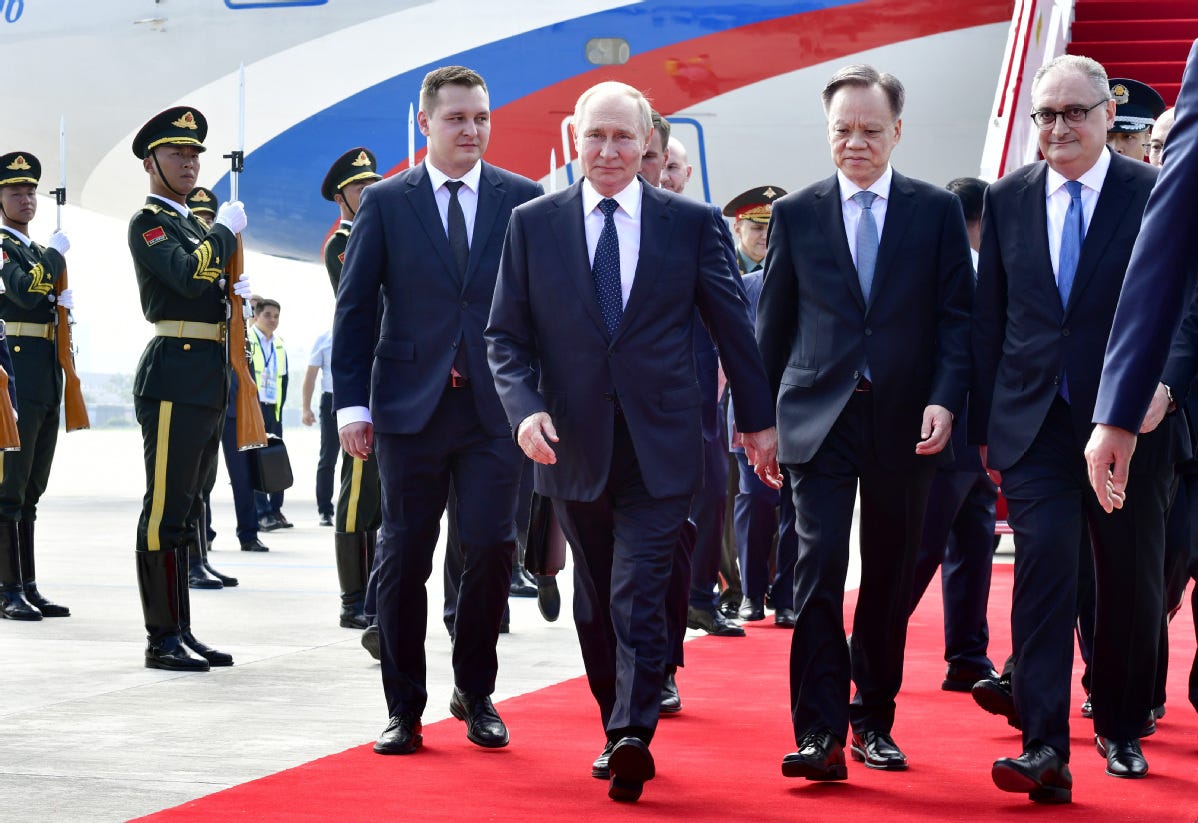
Autocrats, populists, friends and foes, a strongman waging a war in Europe and the leader of the world’s biggest democracy will all be hosted by Chinese leader Xi Jinping this weekend at a summit designed to showcase Beijing as a global leader capable of providing a counterweight to Western institutions. Heads of state and delegations from across Asia and the Middle East will meet from Sunday in the Chinese port city of Tianjin for the two-day summit of the Shanghai Cooperation Organization (SCO), a regional security grouping that has emerged as a cornerstone of Xi and Russian President Vladimir Putin’s drive to rebalance global power in their favor. Chinese officials have billed the summit as the SCO’s largest yet, with the diplomacy and pageantry setting the stage for Xi to tout his country as a stable and powerful alternative leader at a time when the world’s leading superpower the United States under President Donald Trump is shaking up its alliances and waging a global trade war. The gathering also comes days ahead of a major military parade in Beijing that will offer a different message – that of China’s rapidly developing military might, and draw autocrats like North Korea’s Kim Jong Un and Myanmar’s Min Aung Hlaing alongside Putin and Russia-friendly European leaders Aleksandar Vucic of Serbia and Slovakia’s Robert Fico. The summit also gifts Russia’s Putin some international spotlight, just two weeks after his Alaska summit with Trump, and as he continues to ignore international pressure to end his onslaught in Ukraine. Earlier this week Russia’s forces carried out the second-biggest aerial attack since its full-scale invasion of its neighbor. SCO members – which include China, Russia, India, Iran, Pakistan, Belarus, Kazakhstan, Kyrgyzstan, Tajikistan, and Uzbekistan – preside over vast swaths of global energy reserves and govern some 40% of the global population. “Beijing wants to signal that China is the indispensable convener in Eurasia, capable of seating rivals at the same table and translating great-power competition into managed interdependence,” said Rabia Akhtar, director of the Centre for Security, Strategy and Policy Research at the University of Lahore in Pakistan. “The optics are straightforward: China is not just a participant in regional order-making – it is a primary architect and host.” - CNN
Delegations are also expected from the SCO’s 16 official partner and observer countries, which include Cambodia, Egypt, Saudi Arabia, the United Arab Emirates, Bahrain, Qatar, and Kuwait, as well as NATO member Turkey, among others, Chinese officials said ahead of the gathering. Turkish President Recep Tayyip Erdogan arrived in Tianjin on Sunday. Beijing additionally invited a handful of Southeast Asian leaders. UN Secretary General Antonio Guterres is also expected to attend.
The 2017 admission of India and Pakistan has increased the SCO’s weight significantly, but it has also imported deep-rooted regional tensions, resulting in recurring deadlocks and inefficiencies under the organisation’s current consensus-based decision-making mechanism. Liu Zongyi, one of China’s leading South Asia hands, wrote that India’s recent refusal to endorse SCO joint statements, coupled with its confrontational stance towards Pakistan and China, has repeatedly undermined the organisation’s cohesion, exposing its structural weaknesses and inability to manage internal crises effectively.India consistently obstructs China-led initiatives like the BRI, pushes alternative agendas, instrumentalises the SCO platform to bolster domestic nationalist sentiment, and aligns strategically with Western powers, undermining the organisation’s unity and shared vision. India is thus increasingly viewed as an "internal cancer" undermining the SCO’s stability and development.
Discussions in Tianjin are expected to cover the long-mooted SCO Development Bank, a new financial institution modelled in part on the BRICS’ New Development Bank (NDB). “Finance ministers and central bank governors of SCO countries have clearly stated that such an institution is necessary,” Otorbaev, who has closely followed the SCO’s evolution, Kyrgyzstan’s former Prime Minister Djoomart Otorbaev told Turkey’s TRT World. SCO member states may consider using the new bank to settle trade in national currencies, he added. Chinese Ambassador to Russia Zhang Hanhui said in a written interview with Russia Today that promoting the establishment of financing support mechanisms, such as the SCO Development Bank, will be among the agenda items.
World Briefing Hot Take | SCO Summit in Tianjin: The World’s Worst House Guests Gather in China
The Shanghai Cooperation Organization (SCO) summit underway in Tianjin looks more like a reunion of autocrats and strongmen than a regional security forum. Think of it as the world’s most exclusive bad-behavior club—where the main order of business is raising a collective middle finger to U.S. President Donald Trump for his punishing tariffs and pushy ‘America First’ foreign policy.
Expect the talking points to echo previous BRICS summits: boosting trade in national currencies to avoid the U.S. dollar, self-reliance over dependence on Washington, and plotting ways to circumvent sanctions. India will again push its own agenda of economic self-sufficiency, while simmering tensions between Pakistan and India, both full SCO member states, will add extra drama in the background.
Yet for all the noise, the script is largely pre-written. China, as the consummate stage-manager, ensures dissent is kept to a minimum and outcomes are tightly choreographed. No surprises expected.
And as I often repeat in broadcast interviews: if Mr. Putin harbored any illusions about strutting into Tianjin as the number one strongman, he’s badly mistaken. There’s no doubt China is the senior partner in this uneasy duo—Beijing will never allow Moscow, or its leader, to overshadow it.
The symbolism, however, matters. Just weeks after being politically resurrected by Donald Trump in Alaska, Vladimir Putin arrives grinning ear-to-ear, using the platform for bilateral deals and optics of legitimacy.
This summit isn’t about new ideas—it’s about spectacle. And the spectacle is authoritarian leaders projecting defiance while the U.S. President is unlikely even to notice.
Indonesian President Prabowo Subianto on Saturday canceled a planned trip to China as days of protests spread further outside the capital Jakarta, with several regional parliament buildings set ablaze. Prabowo had been due to attend a “Victory Day” parade in China on September 3 to mark the 80th anniversary of the end of World War Two following Japan’s formal surrender. The protests, the first major test for Prabowo’s nearly year-old government, began in Jakarta this week over lawmakers’ pay and worsened after a police vehicle hit and killed a motorcycle rider. In the light of the protest, short-video app TikTok, which is owned by China’s ByteDance, said on Saturday it had suspended its live feature in Indonesia for a few days. Jakarta had this week summoned representatives of social media platforms, including Meta Platforms Inc and TikTok, and told them to boost content moderation because disinformation had spread online. The government says that such disinformation has spurred protests against it - CNN
Senior White House officials believe some European leaders are publicly supporting President Trump's effort to end the war in Ukraine, while quietly trying to undo behind-the-scenes progress since the Alaska summit, Axios has learned. Two weeks after the summit between President Trump and Russian President Vladimir Putin, there has been little clear progress toward ending the war. Frustrated Trump aides contend the blame should fall on European allies, not on Trump or even Putin. White House officials are losing patience with European leaders, whom they claim are pushing Ukraine to hold out for unrealistic territorial concessions by Russia. Sanctions the U.S. is urging Europe to adopt against Russia reportedly include a complete cessation of all oil and gas purchases — plus secondary tariffs from the EU on India and China, similar to those already imposed on India by the U.S. “The Europeans don't get to prolong this war and backdoor unreasonable expectations, while also expecting America to bear the cost," a top White House official told Axios. "If Europe wants to escalate this war, that will be up to them. But they will be hopelessly snatching defeat from the jaws of victory." The Europeans are said to be pushing Zelensky to hold out for a "better deal" — a maximalist approach that has exacerbated the war, Trump's inner circle argues. The U.S. officials believe British and French officials are being more constructive. But they complain that other major European countries want the U.S. to bear the full cost of the war, while putting no skin in the game themselves. “Getting to a deal is an art of the possible," the top official said. "But some of the Europeans continue to operate in a fairy-tale land that ignores the fact it takes two to tango." After his summits with Putin and Ukrainian President Volodymyr Zelensky, Trump repeatedly said the next step must be a Putin-Zelensky summit. So far, the Russians have refused. At the same time, the Ukrainians have rejected any discussion on possible territorial concessions unless the Russians come to the table. Trump was visibly frustrated about the situation during Tuesday's Cabinet meeting. "Everybody is posturing. It's all bullshit," he said. Russia's massive air strikes on Kyiv, plus Ukrainian attacks on Russian oil refineries, further signaled that peace wasn't getting any closer. “Perhaps both sides of this war are not ready to end it themselves. The president wants it to end, but the leaders of these two countries need it to end and must want it to end as well," White House press secretary Karoline Leavitt said on Thursday. A senior White House official told Axios that Trump is seriously considering stepping back from the diplomatic efforts until one or both parties begin to show more flexibility. “We are going to sit back and watch. Let them fight it out for a while and see what happens," the official said. On Friday, Trump's envoy Steve Witkoff and Zelensky's chief of staff Andriy Yermak met in New York. They discussed the potential Zelensky-Putin meeting and Yermak invited Witkoff for a first visit to Kyiv, but no significant progress was made, a source with knowledge of the meeting said - Axios
Prime Minister Narendra Modi spoke with Ukrainian President Volodymyr Zelensky soon after arriving in Tianjin for his first visit to China in more than seven years. Modi reiterated India’s commitment to extend all possible support for peaceful settlement of the conflict and support for efforts aimed at earliest restoration of peace. “Thank President Zelenskyy for his phone call today. We exchanged views on the ongoing conflict, its humanitarian aspect, and efforts to restore peace and stability. India extends full support to all efforts in this direction,” PM Modi said in a post on X.
Thousands of people have held protests across Mexico to highlight the country's many enforced disappearances and demand more action by officials to tackle them. Relatives and friends of missing people, as well as human rights activists, marched through the streets of Mexico City, Guadalajara, Córdoba and other cities calling for justice and urged the government of President Claudia Sheinbaum to help find their missing loved ones. More than 130,000 people have been reported as missing in Mexico. Almost all the disappearances have occurred since 2007, when then-President Felipe Calderón launched his "war on drugs". In many cases, those disappeared have been forcibly recruited into the drug cartels – or murdered for resisting. While drug cartels and organised crime groups are the main perpetrators, security forces are also blamed for deaths and disappearances - BBC
The former British prime minister Tony Blair has attended a White House meeting with Donald Trump to discuss plans for postwar Gaza, the Guardian understands. After stepping down as prime minister in 2007, Blair took on the role of Middle East envoy until 2015 and spent time in Jerusalem trying to formulate a plan for a two-state solution. The former Labour leader, 72, was in Washington DC on Wednesday for the meeting with Trump. The Axios website reported that Trump’s son-in-law and former senior adviser, Jared Kushner, was also in attendance. Trump’s Middle East envoy, Steve Witkoff, said the US was putting together a “very comprehensive” plan for “the next day” after the war. In an interview with Fox News on Tuesday, Witkoff said he believed the war in Gaza could be ended in the next four months. “We’re going to settle this one way or another, certainly before the end of this year,” he said. Asked about a plan for governing postwar Gaza, Witkoff said: “It’s a very comprehensive plan we’re putting together on the next day that I think many people are going to … see how robust it is and how well meaning it is, and it reflects President Trump’s humanitarian motives here.” No details have been disclosed about the proposals under discussion. The White House said: “President Trump has been clear that he wants the war to end, and he wants peace and prosperity for everyone in the region.” The meetings came after Pope Leo XIV demanded that Israel stop its “collective punishment” of the population in the besieged territory. Ten Palestinians, including two children, have died from starvation in the last 24 hours, health authorities in Gaza said on Wednesday. At least 313 people have died from hunger, including 119 children, since the war in Gaza began and Israel intensified its siege on the Palestinian territory - Guardian
Yemen’s Houthi rebels said on Saturday that their Prime Minister Ahmed Ghaleb Al Rahwi and several government ministers had been killed in an attack on Sanaa by Israel on Thursday. The Israeli military said on Thursday that it “precisely struck a Houthi terrorist regime military target in the area of Sanaa in Yemen”. On Friday, Israel's army radio said the strikes on the rebel-held capital had targeted the Houthis' chief of staff and defence minister and it was awaiting confirmation of the outcome. The Houthis vowed to avenge the deaths. We promise to God, to the dear Yemeni people and the families of the martyrs and wounded that we will take revenge," the head of the group's supreme political council, Mehdi Al Mashat, said in a video message posted on Telegram. He warned foreign companies to leave Israel "before it's too late" - The National
Bruce Willis' wife, Emma Heming, is firing back at critics after facing backlash for revealing that she and her husband are now living in separate homes. ICYMI ... Emma recently appeared in a special for ABC News earlier this week, opening up about the challenges of Bruce's frontotemporal dementia and how it's impacted their family. One of the moments that didn't sit well with some viewers was learning that Bruce is now living in a home tailored for people with his needs, rather than with his family. While Emma didn't directly mention living separately in her post, she addressed the online criticism in an Instagram post Friday ... saying, "What I knew is that by sharing some of our intimate information that we would see these two camps. It would be people with an opinion versus people with an actual experience." She says she's noticed comment sections are quick to judge caregivers ... and this is exactly the kind of challenges they're up against. Emma says she turned to her own book for guidance on how to handle opinions flying her way after watching the TV special. In short ... Emma says critics may be "loud and noisy," but if they haven't lived with someone in Bruce's condition, then they don't get a say - TMZ


